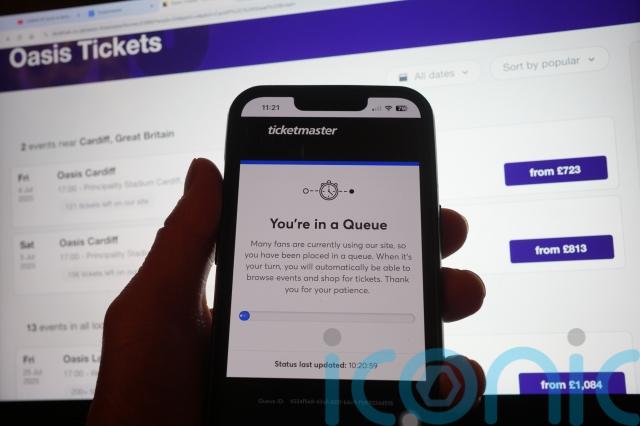
The Musicians’ Union (MU) has welcomed a government ban on resales of concert tickets for profit.
Kelly Wood, national organiser for live, theatre and music writers at the MU, which represents more than 36,000 musicians, said the move would help to maintain the relationship between artists and fans, who are often not aware who is setting the prices for events.

She said: “Overall, we can probably say that we’re pleased to see the government taking action on a practice that has caused a lot of damage to the live sector and made shows less accessible for devoted fans.
“The artist-fan relationship is integral to musicians launching and sustaining careers, and it isn’t always clear to ticket-buyers who is setting the prices on the secondary market.
“The live sector is increasingly challenging for artists as the cost-of-touring crisis leads to higher financial risk and shorter tours often without the guarantee of breaking even.
“Legislating against exploitative and immoral ticketing practices will be welcomed by artists and fans alike, and will help to ensure that fans are not priced out of seeing their favourite musicians live, and that ticket revenue isn’t ending up in the wrong hands.”
On Wednesday, ministers confirmed plans to make it illegal for tickets to concerts, theatre, comedy, sport and other live events to be resold for more than their original cost.
Naomi Pohl, MU general secretary, added: “Changes to secondary ticketing are a big win for musicians, the music industry and music fans. Money made by touts doesn’t go back into the industry or the pockets of the artists you love.
“As a fan, it is deeply frustrating to wait in an online queue for gig tickets only to find they’re sold out and now popping up on sites charging triple the amount. Well done to the UK Government for finally addressing this issue.”

The Labour manifesto promised stronger protections to stop consumers being scammed or priced out of events by touts, who frequently use bots to buy tickets in bulk the moment they go on sale, which they can then sell on for huge mark-ups on secondary ticketing websites.
The proposed rules make it illegal for tickets to be sold at a price above the face value – defined as the original price plus unavoidable fees, including service charges.
Service fees will be capped to prevent the price limit from being undermined by platforms, which will have a legal duty to monitor and enforce compliance.
Individuals will be banned from reselling more tickets than they were entitled to buy in the initial sale.
It comes after a Competition and Markets Authority (CMA) investigation was launched into the way Ticketmaster sold Oasis tickets in 2024.
The probe found Ticketmaster did not tell fans waiting in lengthy queues that standing tickets were being sold at two different prices, and that prices would jump as soon as the cheap tickets sold out.
Ticketmaster sold some “platinum” tickets at almost two and a half times the price of “standard” tickets, without sufficient explanation that these offered no additional benefits in the same areas of the venue, the CMA said.
In response, the CMA said Ticketmaster must now tell fans 24 hours in advance if a tiered pricing system is being used, as it was for Oasis standing tickets.
Tickets for the band’s reunion gigs, which were their first in 16 years, were also seen listed on secondary ticket resale websites for thousands of pounds.
Subscribe or register today to discover more from DonegalLive.ie
Buy the e-paper of the Donegal Democrat, Donegal People's Press, Donegal Post and Inish Times here for instant access to Donegal's premier news titles.
Keep up with the latest news from Donegal with our daily newsletter featuring the most important stories of the day delivered to your inbox every evening at 5pm.